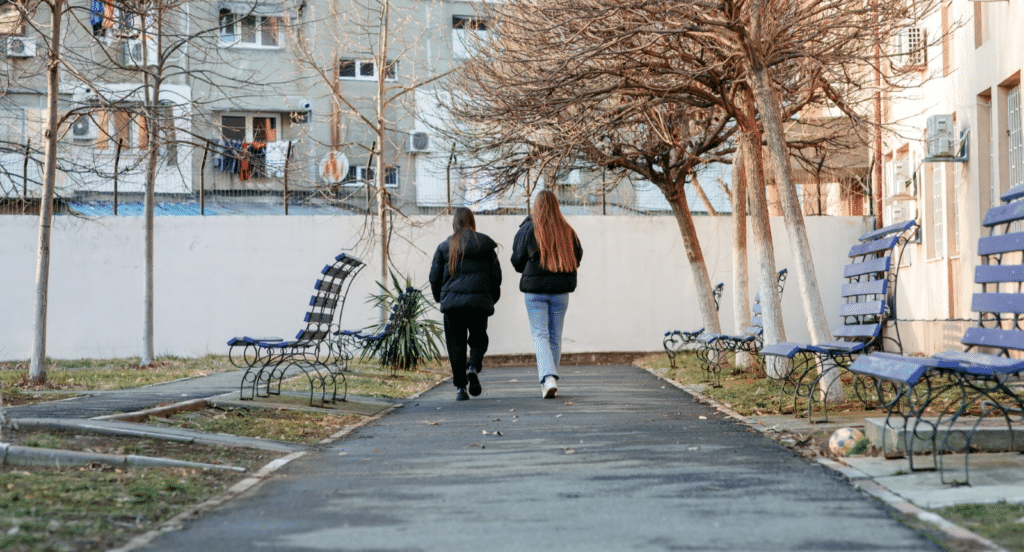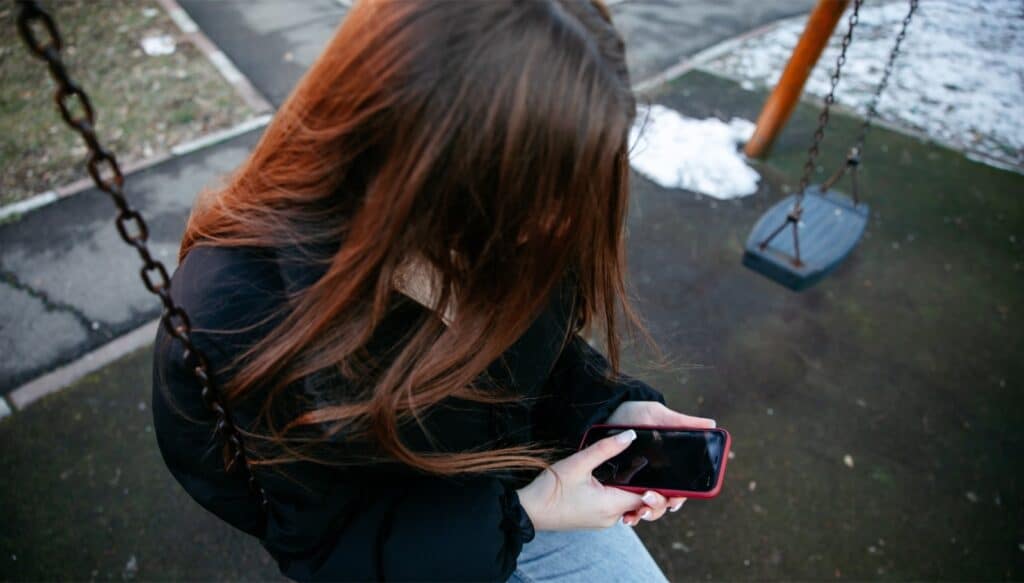The post Harnessing the potential of EU accession to drive care reform: Spotlight on Ukraine and Moldova appeared first on Hope and Homes for Children.
]]>Currently, all EU funding regulations and relevant policies contain measures for shifting from institutional to family and community-based care, thanks to the continuous, close collaboration between civil society and the EU institutions.
However, we have increasingly been advocating for transferring this approach to the EU accession process.
EU candidate countries share a common aspiration: becoming an EU Member State. To achieve this, they must undertake reforms in a number of areas and align with the EU standards, the so called ‘EU acquis’. As Hope and Homes for Children, we strive to ensure that the EU monitors and supports child protection and care system reform in EU candidate countries, as an integral part of their accession journey.
And we’re starting to see some very promising recent developments.
Advancing care reform throughout Europe
In October, the European Commission recommended further advancement of care reform in all ten 2023 Progress Reports that constitute the EU Enlargement Package. This brings an unprecedented opportunity for simultaneous care reform processes throughout Europe, that could effectively lead to the end of child institutionalisation, and result in children growing up in safe and caring families.
These are just some of the relevant excerpts from the reports:
Learning from the past: European Commission brown bag lunch on child protection and care reform in EU enlargement countries
- De-institutionalisation actions are taking place, but need to be further taken forward at a sufficient pace. (Albania)
- Bosnia and Herzegovina needs to urgently develop and adopt a deinstitutionalisation strategy to move towards community-based care.
- Georgia lacks a national strategy on the de-institutionalisation of children. However, the government has made steps to deinstitutionalise remaining non-state regulated religious residential institutions. Further measures are needed to address the lack of proper standards in boarding schools.
- A comprehensive strategy for child protection is necessary to accelerate deinstitutionalisation and the transition towards quality, family- and community-based care services, including with an adequate focus on preparing children to leave care. (Kosovo)
- …deinstitutionalisation of children with disabilities is progressing, [but] insufficiently qualified staff, lack of resources and poor infrastructure hinder the specialised care and support for institutionalised children with disabilities. (Moldova)
- The deinstitutionalisation strategy, initially planned for Q4 2022, has yet to be adopted. (Montenegro)
- Implementation of the 2018-2027 national deinstitutionalisation strategy continues. This involves a transition from institutional care to family and community-based care with support from social services. (North Macedonia)
- implement and report in good time on the strategies on anti-discrimination that includes the rights of LGBTIQ persons, gender equality, violence against women, and deinstitutionalisation; actively counter hate-motivated crimes and establish a track record of investigation and convictions (Serbia)
- Ukraine should develop and adopt a comprehensive de-institutionalisation reform of childcare and launch its implementation, considering the situation of displaced children in the upcoming year.
- Adequate funding should be directed towards reinforcing community-based care and ensuring proper deinstitutionalisation. Particular concern is caused by the construction of new institutions following the earthquakes and the wars in Syria and Ukraine. (Turkey)
Bringing our experience to bear
Following the Enlargement Package publication, the Commission held an internal webinar, focused on care reform, in close collaboration with us and Lumos. EU representatives, based in Brussels and EU candidate countries alike, joined the online event and shared key EU commitments and initiatives to support child protection and care reform in EU candidate countries. This event was a timely opportunity to discuss current opportunities to promote progress in countries in the process of accessing EU membership with EU staff.
Alongside others, we shared insights from former and ongoing EU accession processes, in particular Bulgaria. Our colleagues gave joint recommendations on how to ensure child protection and care reform is achieved in the midst of the EU accession process. We shared lessons learnt from Bulgaria, where progress is down to resolute political will and technical and financial assistance from the European Union – including pooled resources between the EU Directorate-Generals for Regional and Urban Policy (DG REGIO) and Employment, Social Affairs and Inclusion (EMPL), and collaboration with civil society organisations like us.
Despite this, our experts highlighted that efforts must be maintained to ensure the completion of child care reform in Bulgaria, where four institutions for young children with disabilities remain. This ‘looking back’ exercise resonated with our experts from Ukraine and Moldova; our work in these countries will continue to draw on our years of experience working in past and current EU accession countries alike.
Making care reform a reality
This is all very positive, but in order for care reform to really advance and be completed in a quality and sustainable way, it must be properly funded. This would mean governments making sure that some of the Instrument for Pre-accession Assistance (IPA) III, the Neighbourhood, Development and International Cooperation (NDICI) funding, as well as under any new funding instrument or package, are ringfenced for care reform. As we have been operational in Ukraine and Moldova for decades, it is only natural that we follow more closely the developments in these countries.
Recently, there have been two outstanding opportunities for advancing their care reform: the Ukraine Facility Regulation and the EU Support Package for the Republic of Moldova.
Ukraine
Given
- the objectives listed in the Ukraine Facility Regulation, such as
- contributing to the recovery, reconstruction and modernisation of the country, and
- progressively aligning with the EU acquis
- and the high number of institutionalised children, addressed also in the EC Opinion on Ukraine’s application for membership of the European Union,
it is logical that the Ukraine Facility, and the mirroring Ukraine Plan, support a comprehensive reform of the child protection and care system in Ukraine.
Moreover, the European Commission has already granted €10m to Ukraine for the development of a modern child care strategy. Funding its implementation is the next step for securing family care for the thousands of institutionalised and orphaned children, threatened by Russia’s war of aggression against Ukraine.
As care reform was not included in the original EC proposal, we mobilised eleven key child and disability rights Ukrainian and international organisations and networks around joint proposals for amendments. The European Parliament has taken these on board in their report on the Regulation. We then directed our advocacy efforts towards the Council and the Commission and are now expecting the outcome of the trialogues, the negotiations between the three EU decision-making bodies.
Moldova
Similarly, the EU Support Package for the Republic of Moldova could be instrumental for completing care reform for children in Moldova. Especially, when the 2022-2026 National Child Protection Programme and Action Plan provide the necessary base for completing the care reform of children. The implementation however has been delayed due to lack of resources. Our analysis, endorsed by 11 Moldovan and international organisations, demonstrates that care reform could be funded under two of the three Package priorities: Economic development and connectivity and Administrative capacity. A successfully completed reform in an EU candidate country will set an example for all the other accession and partner countries.
Where there’s a will, there’s a way
Ultimately, systematic inclusion of child care reform as a key, priority requirement for EU accession requires resolute political will.
We believe we can secure this by:
- advocating towards the EU to ensure it champions child care reform in the negotiations towards accession
- supporting national and regional child care advocates, so they can seize opportunities to advocate for child care reform in the context of EU accession.
To support the launch and implementation of care reform in EU candidate countries, we’re currently working on producing guiding documents tailored to these two audiences. These build on our decades of experiences in the European Eastern Neighbourhood region. We are looking at launching them early next year, with the hope that they will be a useful tool for governments, EU institutions and civil society actors, working on care reform for children.
Authors: Irina Papancheva, Marie Raverdeau
New Report
Read the report of our speakers’ presentations at the DG NEAR internal webinar ‘Child protection and care reform in Enlargement Countries’
Child Protection and Care Reform in EU Enlargement Countries
The post Harnessing the potential of EU accession to drive care reform: Spotlight on Ukraine and Moldova appeared first on Hope and Homes for Children.
]]>The post Earthquake, War, Crisis: protecting the most vulnerable children during emergencies appeared first on Hope and Homes for Children.
]]>The current news cycle is overwhelming. Over the past 20 months, we’ve witnessed a humanitarian crisis in Ukraine that shows no sign of abating. Millions of children are suffering the consequences of war. Yemen faces a famine, with unprecedented levels of hunger and one of the highest rates of child malnutrition in the world. In Syria and Turkey, earthquakes have killed over 55,000. Millions more have lost their homes.
Then, shocking scenes from Israel, Gaza and the West Bank have horrified people around the world.
“The killing and maiming of children, abduction of children, attacks on hospitals and schools, and the denial of humanitarian access constitute grave violations of children’s rights”
Adele Khodr, UNICEF Regional Director for the Middle East and North Africa, referencing the situation in the Gaza Strip specifically as “a growing stain on our collective conscience.”
We’ve added our voice to the global community’s calling for an urgent ceasefire by all parties in the conflict in Israel and the Occupied Palestinian Territories, and an immediate and unconditional release of Israeli children taken hostage by Hamas
And now an earthquake in Nepal, where our teams are working with local authorities to support crisis response with food, tents, clothes, blankets, and counselling services to calm their fears and give them hope.
Winter Appeal We need your help
By giving to Winter Appeal you can help protect children and families suffering after the Nepal Earthquake and across our programmes
We can’t work everywhere that’s currently facing a humanitarian crisis. But we do work globally through our advocacy for a better world for all children – free from the harm and safe from the fear they experience daily in orphanages. As part of this, we fight to implement our learning about how emergency preparedness and response should work hand in hand with care reform to keep the most vulnerable children safe.
Emergency Response – what we’ve learned
Thankfully, humanitarian actors are on the ground now, responding as fast as possible to these emergencies. But some disasters are predictable, and to build a truly fair world, we all need to prepare for them. We’ve learned here that disasters and emergencies always hit children particularly hard, and that children deprived of family support and care are especially vulnerable.
Whether it’s because they’re living in orphanages, or have become separated from their families, for example as refugees in the fog of war, without trusted, loving carers to protect and comfort them, unaccompanied children are at greatest risk of physical violence and abuse, psychological trauma, exploitation, and trafficking.
1. Prioritise the most vulnerable
All agencies working to respond to war and natural disasters must prioritise children without families. They’ll need trusted adults to navigate their trauma. They’ll need practical help as they flee their homes and countries in fear for their lives.
2. Build focus on children without families into emergency preparation
Our work in Ukraine has shown us that the needs of children deprived of family care all too often are overlooked in emergencies, while the harm and trauma they suffer is irreversible.
As an international community of responders, we must account for their well-being and whereabouts, reunite them with their families when possible, or welcome them into supporting family environments urgently. And we must be ready with robust emergency preparedness mechanisms, explicitly designed to direct attention to children in alternative care, to limit as far as possible the harm to these children.
3. Don’t rely on orphanages as temporary response
In a crisis, for unaccompanied children and particularly children on the move, orphanages are often seen as a ‘temporary’ solution. While well-intended, they become a long-term, established part of the care system. This locks up resources in buildings, rather than being directed towards keeping families and children together.
4. Prevention is the best cure
Ultimately, the most important thing that we’ve learned is that prevention of family separation and the strengthening of families and communities is the single most effective way of protecting children from experiencing emergency situations alone. We work directly with families and communities, and we continue to advocate for them globally, to ensure access to services in the community, and ensure that families have the financial and psychosocial support they need to keep their children at home. We continue this work so that one day, no child will have to face the horrors of war and disaster without the care of a trusted adult to support, guide and protect them.
Read our full recommendations on disaster resilience and child-centred response
The post Earthquake, War, Crisis: protecting the most vulnerable children during emergencies appeared first on Hope and Homes for Children.
]]>The post “Zelensky’s ambition is to eliminate children’s facilities while he is President.” appeared first on Hope and Homes for Children.
]]>We reflect upon the week of the Ukraine Recovery Conference, why there’s hope for Ukraine’s care reform process, and how domestic political will and international attention has galvanised into commitment to all Ukrainian children growing up in safe, loving families.
The Ukraine Recovery Conference 2023 was co-hosted in London by the Governments of Ukraine and the United Kingdom. Focusing on rebuilding the war-torn country both physically and socially, the conference and associated events were an opportunity for the Government of Ukraine to outline its reconstruction plans. These included an ambitious care reform agenda, and an appeal to international donors to support this process.
We’ve been working in the run-up to the conference, in Ukraine and internationally, to ensure the international attention focused on Ukraine turns into tangible support for an inclusive, sustainable care reform process. In late June, alongside 16 organisations including Save the Children, Lumos, Disability Rights International (DRI) and Human Rights Watch, we published joint recommendations on the reform of Ukraine’s child protection and care system.
Mykolayivka Special Boarding School of General Education, Ukraine, 2016 Photo credit: Aleksandr Glyadyelov.
Securing political will and commitment to care reform
One essential element of making change happen is ensuring the political will to change is unmistakeably there.
The day before the conference, Chatham House hosted a dedicated ‘Road to URC 2023’ event, for civil society to discuss its vital role in Ukraine’s recovery. At the event, Yulia Sokolovska, Deputy Head of the President’s Office of Ukraine, highlighted the level of political support for the care reform agenda by saying “the President’s (Zelensky’s) ambition is to eliminate children’s facilities while he is President.”1
At the conference itself, one session on ‘Human Capital’ had significant focus on care reform. Minister for Social Policy, Oksana Zholnovych, and UNICEF Deputy Executive Director for Partnerships, Karin Hulshof, highlighted the importance of their Better Care agenda, while Darya Kasyanova, Chair of the Ukrainian Child Rights Network, outlined why the need for care reform is so urgent. UK Minister for Development, Andrew Mitchell, referenced the UK’s commitment to supporting Ukraine’s care reform agenda “working to ensure that each Ukrainian child, including children with disabilities, has the opportunity to live in a nurturing family.”2
To secure such consistent commitment to reform on a public stage was a huge step forward. But there was more to come.
"We must make sure every child in Ukraine has the opportunity to be raised in a family."
– Minister Oksana Zholnovych at the Ukraine Recovery Conference side event
International support for a Ukrainian vision of the future of child protection
After the conference, alongside UNICEF, Lumos and the Foreign, Commonwealth and Development Office (FCDO) and the Government of Ukraine, we hosted a side event dedicated specifically to the care reform agenda. Here, Minister Zholnovych presented Ukraine’s ambitious Better Care agenda, and called for all those in the room to join Ukraine and publicly commit to supporting the reform process.
The call was answered by Denise Brown, UN Humanitarian Coordinator for Ukraine, who spoke of the UN’s commitment to supporting the Government of Ukraine’s journey towards care reform and Danae Dholakia, UK Special Envoy for the Ukraine Recovery Conference, who reiterated the UK’s ground-breaking 2018 commitment to support global care reform efforts.
Ukraine’s accession to the European Union
The role of the European Union (EU) in Ukraine’s reform process is key, particularly in the context of Ukraine’s accession journey. The Vice President of the European Commission, Dubravka Šuica, made clear that the EU is ready to rise to this challenge.
“The quality and success of the deinstitutionalisation…will be an important benchmark for measuring Ukraine’s preparedness for accession.”3
– Dubravka Šuica, Vice President of the European Commission
Building back better – together
The clear, public alignment between speakers that ‘the time for reform is now’ is a source of genuine hope that we can make real progress together. In a moving speech, Baroness Helena Kennedy made parallels with the UK’s recovery from World War II, building a stronger social protection system in the aftermath of destruction.
Tellingly, none shied away from the scale of the challenge; all were clear that the Government of Ukraine is not alone in this process. UNICEF is supporting the Government to develop its Better Care agenda. Philippe Cori, Regional Director for Europe and Central Asia, gave a powerful speech highlighting what will be needed to make this reform a success, including support for the social workforce and concrete funding commitments.
Indeed, it is only active involvement from Ukrainian civil society experts can ensure that this reform process is sustainable and inclusive. Halyna Kurylo, of DRI, emphasised the importance of the participation of children and adults with disabilities in the process. Lumos’s Yaroslav Laguta made the key point that the child, and their destiny, must be at the centre of reform. Kasyanova willed all involved to consider more than recovery, and focus instead on development – building a better system than before.
With private sector support also crucial for Ukraine’s recovery, our own CEO Mark Waddington outlined the importance of private sector and civil society collaboration, to ensure resources are allocated towards sustainable, inclusive reform.
This moment was a product of amazing co-operation. Governments, multilateral institutions and civil society came together as partners to present a clear, aligned position on Ukraine’s care reform. This demonstrates we can move closer to a future where no child in Ukraine grows up missing the love and security of a family.
1 – Chatham House – Shaping the New Ukraine – Human capital: healing, reintegration, empowering 1:21:10 https://www.youtube.com/watch?v=6Qek2xP1iEc&list=PLy9ppGFZeRr5N6q5xqrkKYcLtaciG_YXy&index=3
2 – Ukraine Recovery Conference 2023, Investment in Ukraine’s Human Capital Recovery, 55:47 https://www.urc-international.com/ukraine-recovery-conference-urc-2023
3 – https://www.eeas.europa.eu/delegations/united-kingdom/eu%E2%80%99s-support-ukraine%E2%80%99s-comprehensive-child-care-and-child-rights-reform_en
Ukraine Crisis Appeal We need your help
By giving to our regional response across Ukraine, Moldova, and Romania you can help protect children and families right now, and in the aftermath of this war.
The post “Zelensky’s ambition is to eliminate children’s facilities while he is President.” appeared first on Hope and Homes for Children.
]]>The post The road to safety: Daryna’s* journey as a 17-year-old refugee appeared first on Hope and Homes for Children.
]]>Photo credit: Ionut Stoica/Hope and Homes for Children
Daryna* grew up inside one of Ukraine’s 700 orphanages. When Russia invaded, she was forced to evacuate to Romania. An institutionalised teenager, now a refugee.
From being separated from her siblings when Russia invaded, to becoming a refugee at 17 years old, Daryna has experienced great upheaval in her life. Now, thanks to your generosity, she’s safe and ready to tell her story.
Daryna’s story sheds light on the hidden victims of Russia’s attack: Ukraine’s institutionalised children. But most importantly, it’s about strength, bravery and the power of family. Read on for her story. In her own words.

Photo credit: Ionut Stoica/Hope and Homes for Children
In Daryna’s* words
Growing up inside an orphanage
I’ve been in the child protection system since I was five years old. I grew up in an orphanage with my younger brother and two younger sisters. I’m the eldest. My brother is 16, my sister is 13, and my other sister is 12.
It was so hard for us when we were living at home. My mother struggled with alcoholism and couldn’t take care of us properly. We didn’t have food or clothes.
One day, my sister and I got sick and went to the hospital. Then, somehow, we were taken away to stay in this great big building. And that was the orphanage we grew up in.
It was better for us there in the sense that we felt secure. We were safe. But it wasn’t home.

Photo credit: Ionut Stoica/Hope and Homes for Children
At the start, my dad would come to visit us on our birthdays. He’d insist on bringing us clothes and sweets. He’d bring us home for the day, then take us back to the orphanage.
But two years ago, when I was fifteen, our dad died. We couldn’t go home anymore. It was so hard – he meant the world to me.
The beginning of the Russian invasion
On the night Russia declared war on Ukraine, I was asleep in my dormitory with my best friend Oksana*. It was 4am.
“Did you hear that?” she said. “I think the war’s just started.”
At first, I just dismissed her. Oksana’s often frightened because of her childhood experiences. “Go back to bed,” I said. “It’s just your imagination.”
But then, at 6am, the sirens started to go off. Oksana woke me up.
“Daryna, the war has really begun.”
I couldn’t believe it, even with the sirens blaring. I just laughed nervously. I told myself it was impossible. But an hour later, the headmaster came in. He told us we had to go home. The orphanage was closing.
Oksana and I decided to leave by bus and stay with a friend’s family. Our friend’s village was near the Moldovan border, just a three-hour walk away. We figured if we needed to leave and cross the border, we’d be able to go on foot.
My siblings stayed in the town of our orphanage. It was getting more and more dangerous there.
Oksana and I were with our friend’s family for a few days, until we got a call from one of our teachers. She told us that they’d hoped the war would end in a couple of weeks. But now, they realised it would last a long time. So, the orphanage staff decided we had to be evacuated to Romania.

Photo credit: Ionut Stoica/Hope and Homes for Children
One week later and we were back in the orphanage, packing our clothes and anything we could take with us.
By the time I got back, my younger siblings had already been sent to Poland, because we were evacuated with our caregivers according to our age. We didn’t even get to say goodbye.
I stayed in touch with my sister on WhatsApp. But when they first arrived in Poland, they had mobile issues and couldn’t call me. We were only out of contact for 24 hours, but it felt like forever. I was so worried for them.
The journey to Romania
We left early in the morning and travelled by bus to Odessa. Then, we got a train to Izmail. From there, we crossed the Danube River Delta by boat, arriving in the city of Tulcea in Romania. Finally, we got a bus to Bucharest.
In total, the trip took us around 20 hours. It was so difficult. I was terrified and exhausted. But mostly I was scared about bombs dropping on us. It was a long and hard journey.
When we’d nearly reached Bucharest, our bus stopped at a gas station. There were some young Romanian boys outside who heard us speaking Ukrainian.
Suddenly, they started shouting “Salvează Ucraina!” That means “Save Ukraine!”
They gave us money, saying “Please, take it if you need it.”
Then, they said “We are with you. We stand with you.”
Despite the exhaustion of such a long journey, it put a huge smile on our faces. The girls I was travelling with got back on the bus laughing, saying “We can’t believe it. They’re supporting us.”
We were so impressed with how the people in Romania welcomed us. They were warm and caring, giving us everything we needed. “What a beautiful country,” I thought.
Life in Bucharest
When we finally arrived in the emergency child protection centre, I was so tired that all I wanted was a bed to sleep in.
It was around midnight when we got in, but we were surprised to find all the Romanian staff were there waiting for us. They’d been waiting for us for 20 hours; they hadn’t gone home.
We were shown to our rooms, and I got to share with my best friend Oksana and two other girls. Now, there’s four of us all together.

Photo credit: Ionut Stoica/Hope and Homes for Children
Since arriving in Romania, life’s been OK. I’m in my second year of high school, studying online every day. Most of my peers are still in Ukraine, at home with their families.
When it comes to food, clothes, and being warm and safe, I’m fine. But still, I’m sad most of the time. I miss my brothers and sisters. I’m very worried about what’s happening in Ukraine.
I want to see my brothers and sisters more than anything. I really hope I can return to Ukraine, that everything will be over.
I don’t know how that will happen, or how we’ll manage to live together again.
All I know is that when I see them, I’ll give them a huge hug.
Hope away from home
Daryna’s* story is one of many. When Russia launched its assault, children living in Ukrainian orphanages – 90% of whom had parents who could’ve taken care of them – were uprooted and evacuated even further from home.
It’s one thing to experience your country being invaded. It’s another to endure it alone – without the love of family, the protection of parents, or the company of your siblings.
At just 17, Daryna has experienced hardship far beyond her years. But still, she has hope.
And that’s what we’re committed to protecting. Not just for Daryna, but for every child that’s had to suffer the double trauma of institutionalisation and displacement. We’re working to show them there’s hope.

Photo credit: Ionut Stoica/Hope and Homes for Children.
After being evacuated, Daryna and 16 other young people were welcomed into an emergency child protection centre in Bucharest – a former orphanage which we closed in 2019 that’s been transformed into a sanctuary for young refugees.
Daryna’s now one of the 8,187 refugees – 4,559 of them children – that our team in Romania have supported since the start of the war. In partnership with the Romanian government, we’re continuing to do everything we can to support their safety.
But that’s not all. Since 1998, we’ve been working to shut down all orphanages in Ukraine. Now, as the world turns its attention to the reconstruction of Ukraine, we’re pushing to ensure social reconstruction is made a priority.
Ukraine must transform its child protection system, putting families at its core, and working towards an orphanage-free future for its children.
If you’d like to support our work and help ensure no more children have to endure their childhood locked away in an orphanage, please make a donation today.
Donate to support our work in Ukraine
*Name changed to protect identity
The post The road to safety: Daryna’s* journey as a 17-year-old refugee appeared first on Hope and Homes for Children.
]]>